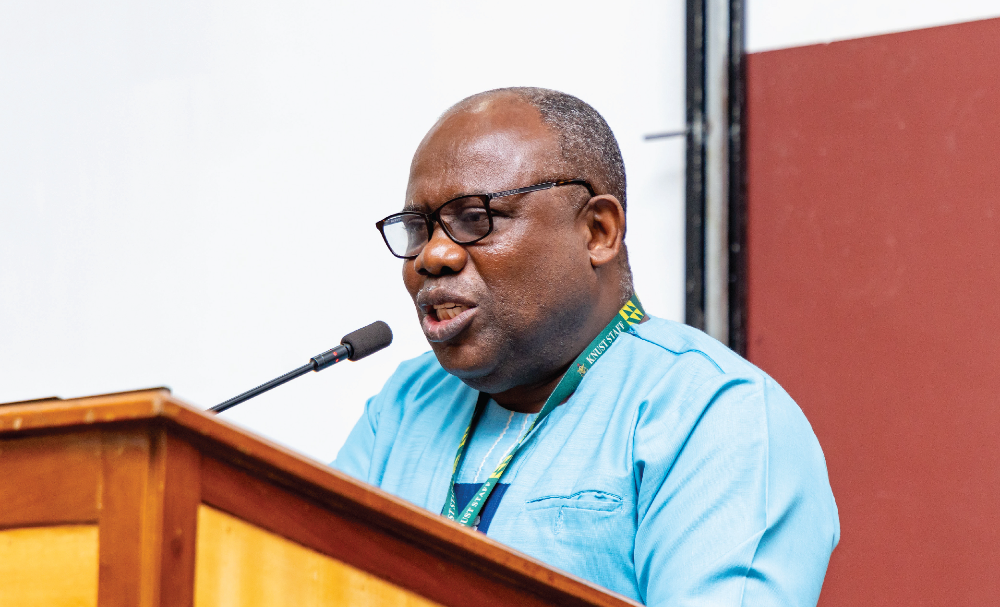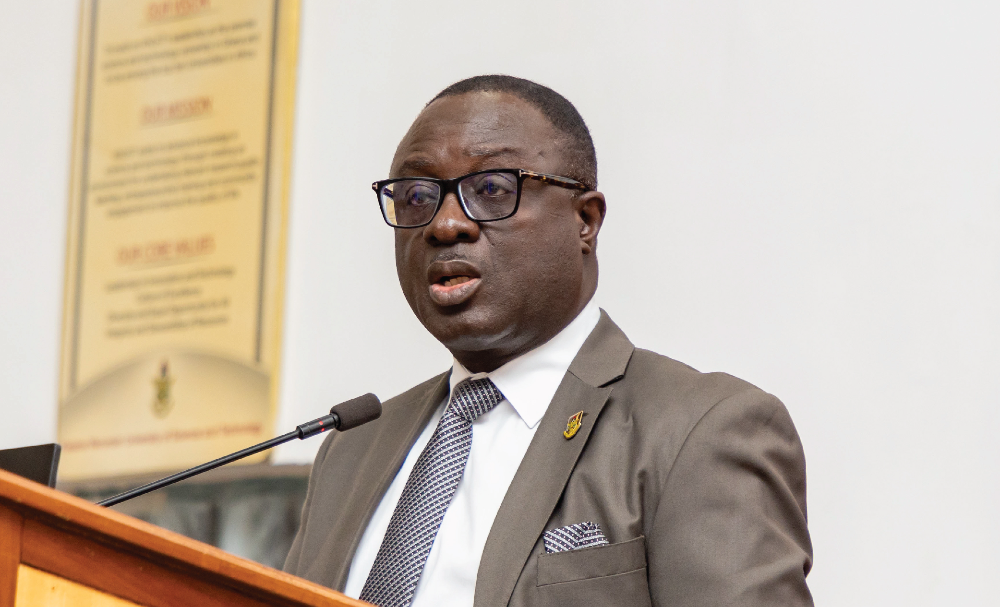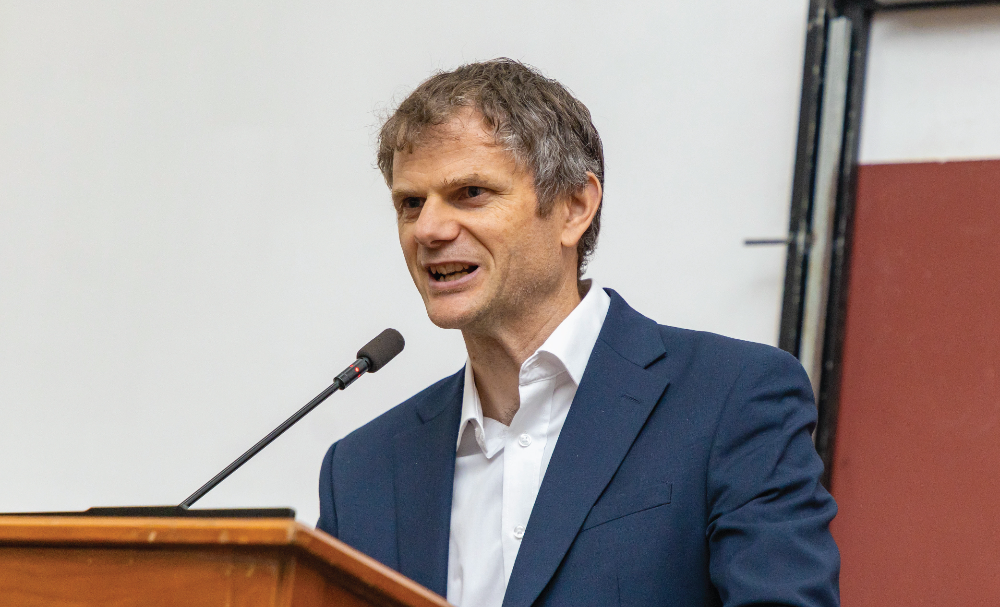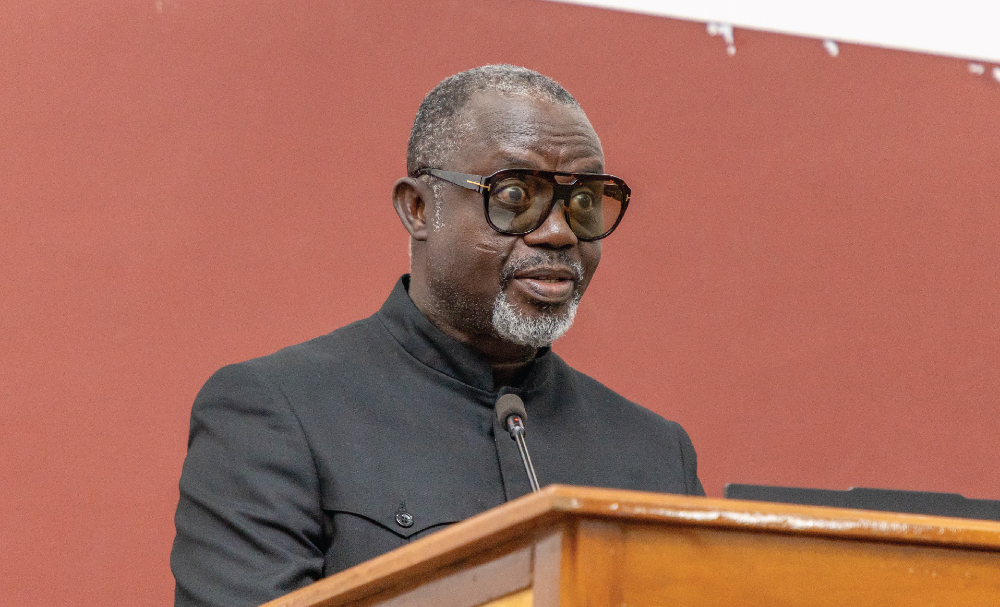Kwame Nkrumah University of Science and Technology (KNUST), Kumasi has launched a major UK-Ghana research initiative aimed at strengthening weather forecasting systems to protect Ghana’s energy infrastructure from climate-related disruptions.
The Early Warning for Energy Sector (EW4Energy) project which opened with a high-level kick-off meeting brought together researchers and stakeholders from Ghana and the United Kingdom.
The project seeks to improve Ghana’s ability to predict short-term, high-impact weather events such as storms and lightning that disrupt the energy sector, and to develop data-driven tools that will strengthen infrastructure and disaster response.
Led by the University of Leeds in partnership with KNUST, the University of Cape Coast, the Ghana Meteorological Agency (GMet), and the UK Centre for Ecology and Hydrology, EW4Energy integrates satellite data, AI, and lightning detection systems to produce rapid, impact-based forecasts tailored to Ghana’s climate.

Professor Leonard Amekudzi, Provost of the College of Science at KNUST and Country Lead and Co-Principal Investigator, called the initiative “an exciting intersection of science, technology, and collaboration in response to the global climate crisis.”
He underscored the importance of moving from data collection to resilience-building as extreme weather events grow more frequent.
“This project is not only about understanding storms,” he said. “It’s about empowering our energy systems to withstand them.”
Amekudzi added that traditional forecasting methods must be adapted to the tropical context. “Forecasting within six hours could mean the difference between preparedness and disaster,” he said, pointing to the potential of combining space-based lightning data and machine learning to improve lead times.

Speaking at the event, KNUST Pro Vice-Chancellor Professor David Asamoah emphasized the university’s role in advancing interdisciplinary research for societal benefit.
“This project reflects our core mission, leveraging knowledge and research to transform society,” he said, lauding the project’s emphasis on capacity building, youth engagement, and the application of artificial intelligence in environmental systems.
He also urged project partners to prioritize collaboration, inclusivity, and local ownership. “Let us not forget the importance of building local ownership, ensuring gender equity, and investing in the next generation of scientists and practitioners. Our strength lies not only in our data and models, but in our people,” he said.

Principal Investigator, Professor John Marsham from the University of Leeds noted that the initiative builds on nearly two decades of UK-Ghana scientific collaboration, including projects such as SWIFT and the FASTA app.
“This project takes the next step from science to real-world application,” he said, citing Africa’s growing capacity in satellite-based nowcasting and AI-driven weather prediction.

Dr. Eric Asuman, Director-General of the Ghana Meteorological Agency, welcomed the project as timely and essential, citing the growing vulnerability of energy infrastructure to weather extremes.
“Our energy systems are inextricably linked to weather,” he said. “Floods, droughts, and rising temperatures directly threaten our infrastructure and national economy.”
Asuman also praised the project’s focus on localised solutions and alignment with Ghana’s national Early Warning for All roadmap, part of a global call by the UN Secretary-General for universal early warning systems.
“We must see data-driven forecasting not just as a technical tool, but as a fundamental element of national development,” he said.
The EW4Energy project team includes Professor Leonard K. Amekudzi (Principal Investigator), Dr. Jeffrey N. A. Aryee from the Department of Meteorology and Climate Science, and Dr. Michael Edem Donkor and Dr. Akyana Britwum from the Department of Physics at KNUST.
| Story: Eunice Asare (URO) | Photos: Michael Kwawu (URO) | |

















